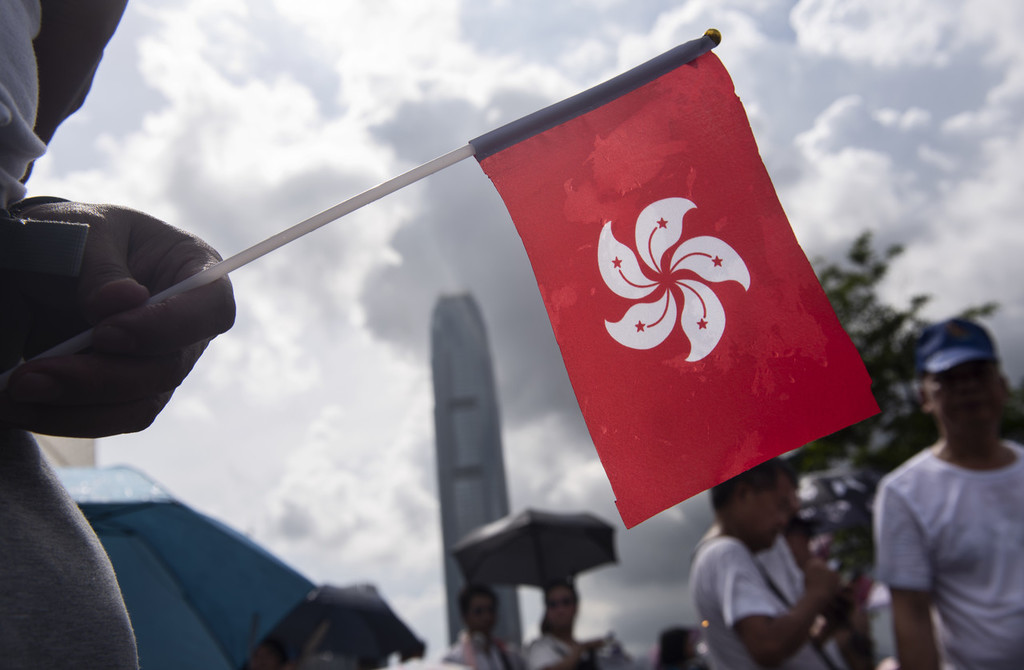Elites, inequality are HK's real problem
By Andrew Sheng/Xiao Geng | China Daily | Updated: 2019-09-05 07:11

Since China regained sovereignty over Hong Kong on July 1, 1997, the city has prospered economically, but festered politically. Now, one of the world's richest cities is engulfed by protests, with demonstrators blocking roads, paralyzing the airport, and at times unleashing violence. Far from a uniquely Chinese problem, however, the current chaos should be viewed as a bellwether for capitalist systems that fail to address inequality.
In times of crisis, it is easy for emotion to overwhelm reason, and for dramatic and deceptive narratives to take root. This tendency is exemplified by media reports that call the unrest a "clash of cultures" symbolizing a broader global struggle between autocracy and democracy, or references to a "fight between two civilizations", as Hong Kong legislator Fernando Cheung put it.
Such narratives often treat "democracy" as synonymous with improved welfare-a characterization that is not borne out by the facts. As political scientist Francis Fukuyama has conceded, centralized systems can deliver economic outcomes that are superior to decentralized, inefficient democratic governments.
But those who think the central government will resort to a military-led crackdown forget Sun Tzu's dictum that winning wars without fighting is the "acme of skill". The central government is well aware that if Hong Kong becomes a political or ideological battleground, peace and prosperity will suffer in the city as well as on the Chinese mainland. Given this fact, the central government is willing to go to great lengths to uphold the "one country, two systems" framework under which Hong Kong has been given special administrative region status.
What the central government is not willing to do is consider independence for the city. Like a parent dealing with a frustrated teenager, the central government views the current unrest as a family matter that must be resolved internally. By appealing to countries such as the United States to intervene in the SAR, some Hong Kong demonstrators have not only crossed the bottom line of national sovereignty, but also turned a blind eye to the long and destructive track record of Washington's "democracy-building" efforts around the world, from Central America to Central Asia.
The reality is, Hong Kong is a living example of how the rule of law and electoral democracy can work within the Chinese context. The city ranks 16th in the World Justice Project's Rule of Law Index, right behind Japan and ahead of France (17th), Spain (21st) and Italy (28th). As for electoral democracy, however, there are significant challenges, which have little to do with the central government.
A powerful, but oft-ignored, factor underlying the frustrations of Hong Kong residents is inequality. Hong Kong's Gini coefficient-in which zero represents maximum equality and one represents maximum inequality-now stands at 0.539, its highest level in 45 years. By comparison, the highest Gini coefficient among the major developed economies is 0.411(in the US).
This inequality is most starkly apparent in housing. The per capita residential space in Hong Kong is just 16 square meters (172 square feet), compared with 36 square meters in Shanghai. Moreover, whereas nearly 45 percent of Hong Kong residents live in public rental or subsidized housing, 90 percent of mainland households own at least one home.
Yet despite having fiscal reserves of more than HK$1.2 trillion ($147 billion), the Hong Kong SAR government has failed to address inequality, precisely because of the electoral politics to which the protesters are so committed. The city's Legislative Council-whose members are elected through a complicated process based on proportional representation-is too politically and ideologically divided to reach a consensus.
Unable to push through tough reforms to subdue vested interests, as the central government is doing on the mainland, the LegCo is also vulnerable to the influence of real estate developers eager to block measures that would lower prices, such as the allocation of land for more public housing.
Some companies are reportedly hoarding huge plots of unused rural land, either directly or through shell companies, to constrain supply. The Hong Kong demonstrators believe they haven't been heard. But it is the city's own elites, not the central government, that have failed them. Hong Kong politicians were so thoroughly out of touch with ordinary people that the protests took them by surprise, despite signals from social media and the free (though adversarial) press.
This means that, beyond addressing concrete problems such as high housing prices, Hong Kong will need to reopen channels of communication between the public and policymakers. This will not be easy, not least because the protests lack any clear leaders. But some consensus on how to move forward as a community will be needed to ensure the local government's legitimacy while it implements needed reforms.
It will take time for Hong Kong to recover from these months of upheaval. But all Chinese, from Beijing to Hong Kong, know that there are no quick fixes to problems. Progress is a never-ending series of small steps, many of which must be made in difficult conditions. The only way to succeed is with humility, patience, wisdom and a sense of shared destiny.
Andrew Sheng is a distinguished fellow of the Asia Global Institute at the University of Hong Kong and a member of the UNEP Advisory Council on Sustainable Finance. And Xiao Geng, president of the Hong Kong Institution for International Finance, is a professor at and director of the Research Institute of Maritime Silk Road at Peking University HSBC Business School.
Project Syndicate
The views don't necessarily represent those of China Daily.
























